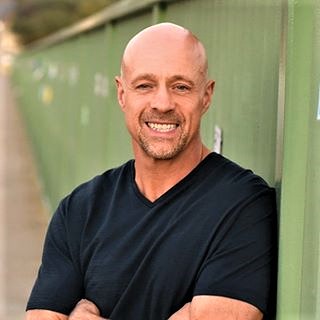The recent deaths of Kate Spade and Anthony Bourdain are awful and tragic reminders of just how devastating an impact mental illness can have on a person.
The medical condition, in all its forms, is cunning, baffling, incessant and evil, and uses all means necessary to inflict horrific pain upon its undeserving victims.
Matt Haig, in his book, “Reasons to Stay Alive” says, “depression is a disease of thoughts.”
I believe Matt is spot on, and the sequence in my mind and those of my brothers and sisters in the world, often flows like this:
Depression creates a thought.
The thought births an emotion.
The emotion triggers an action.
It’s a highly effective mechanism used to thrust a soul into the precarious state of isolation, extreme disconnection, and worst of all, hopelessness. From that dark spot in hell, a suffering soul can lose its way, and wander past the point of no return.
Nothing good happens in isolation. Only bad and terrible things are born there.
But, there is a way out, and it is by way of connection.
Connection creates hope, and hope heals, and does even more than that.
Hope revitalizes, restores, reenergizes and renews a weary soul.
Hope reminds us we are wanted, worthy and that we matter.
Hope saves lives.
The truth is, sometimes what hurts the most can’t be seen. Sometimes great agony and pain lie just behind a forced smile or distracting joke.
But, while the pain of mental illness is most often invisible, that doesn’t mean there is nothing we can do to help alleviate the unseen suffering of another.
Actually, what we can do is surprisingly simple, yet powerful, even life-saving.
The beauty is, sometimes what helps the most is easy to do. Sometimes it’s the little things that make the biggest difference, and we are all capable of doing the little things.
We are all capable of creating connection:
We can take the time to remember and use a person’s name.
We can pause and stand in the innocent place of curiosity and ask a heartfelt, open-ended question, and in doing so, create the space for another to tell us their story.
We can send a timely, specific and authentic expression of our care, concern, and support. And, we can do this simply by way of a text, an email, or a phone call. But for me, I think the best way is to use the good old-fashioned handwritten note to convey our loving sentiments.
One day, not long ago while stuck in the middle of a major depressive episode, someone near and dear to me sent me one of those priceless, amazing, life-saving handwritten notes.
It was in fact, the perfect note:
It offered support, not advice.
It served up empathy, not pity.
It oozed understanding, not judgment.
And, at the bottom of the note, this soul, whom I love and completely adore, passionately reminded me, and in no uncertain terms I might add:
“Depression can’t have you, because you’re ours!”
Let us always remember; in the end, it’s all about connection.

